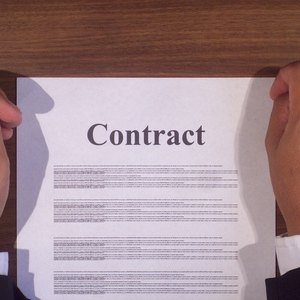
After a house, a car is quite often the largest major investment a family will make. While everyone looks to save money on an automobile purchase, safety, reliability, fuel efficiency and longevity are not qualities to be ignored either. Given this scenario, it is safe to assume that any vehicle purchase will put a huge dent in the savings account unless the new owner opts for financing.
This, however, is a double-edged sword. A loan makes the car affordable but it is also an ongoing financial burden. Some owners have chosen to get rid of the debt by selling the car.
Dealers Will Buy Financed Cars
Selling a car with a loan to a dealership is not an uncommon practice. In fact, it is more common than people realize. Whenever an old vehicle is made part of a new vehicle purchase deal as a trade-in, the dealer is, in essence, purchasing the prior automobile.
Used cars have value to these auto merchants, who can either renovate the vehicle for re-sale or, on the other hand, strip the car for spare parts that will go to their servicing departments. Some dealers, it bears noting, do a more robust business in the used, rather than new, car market. The question is: Will they offer enough?
Read More: Can You Sell a Vehicle You Just Bought?
Will a Dealership Buy Your Car if You Still Owe?
For those worried about selling a car with a payment contract to a dealership, there is one cold, hard fact to keep in mind: The dealer does not evaluate the vehicle based on the seller's debt or lien. The resale promise, or the value of its parts, will determine how much money a dealer is willing to part with. So, the short answer is yes, the dealership will buy the car. The seller, meanwhile, is the one who needs to worry about the asking price.
Before contacting any auto retailer, a car owner should ask the lender or finance company for a payoff letter, detailing principal and interest owed, that is good for 10 days, as well as the per diem interest that would be charged thereafter. This, of course, must be the minimum acceptable offer from the dealer. Tweak this price by getting a decent value estimate from Kelley Blue Book or Edmunds.com.
Read More: How to Pay Off a Car Loan Early
Do All Dealers Buy Such Cars?
A good first step is to check with the retailer from whom the car was bought. As the original seller, this party may recognize value quickly and be (relatively) generous with the offer. Deciding to sell a car back to the dealer isn't the only option.If the car is simply too expensive to keep, popular auto loan companies will extend the financing to make the monthly payments lower, but in the long term, however, the owner might end up paying more in interest.
Beyond these options, sellers can survey local dealers, preferably those certified to sell the same make as the vehicle in question, but you need not restrict the dealership search with that filter.
Be Cautious of Attractive Online Offers
Those desperate to unload a debt-burdened or unwanted automobile might consider one of many websites that offer to take ownership of the vessel quickly with generous compensation. Sellers do well to proceed carefully when considering these advertisements. Websites Popular Mechanics review such enterprises and provide thorough information on the most reputable of them.
The key to success is the ability to pay off the encumbrance attached to the car and making a little extra in the process. These resources make such success more likely and more profitable.
References
Writer Bio
Adam Luehrs is a writer during the day and a voracious reader at night. He focuses mostly on finance writing and has a passion for real estate, credit card deals, and investing.

